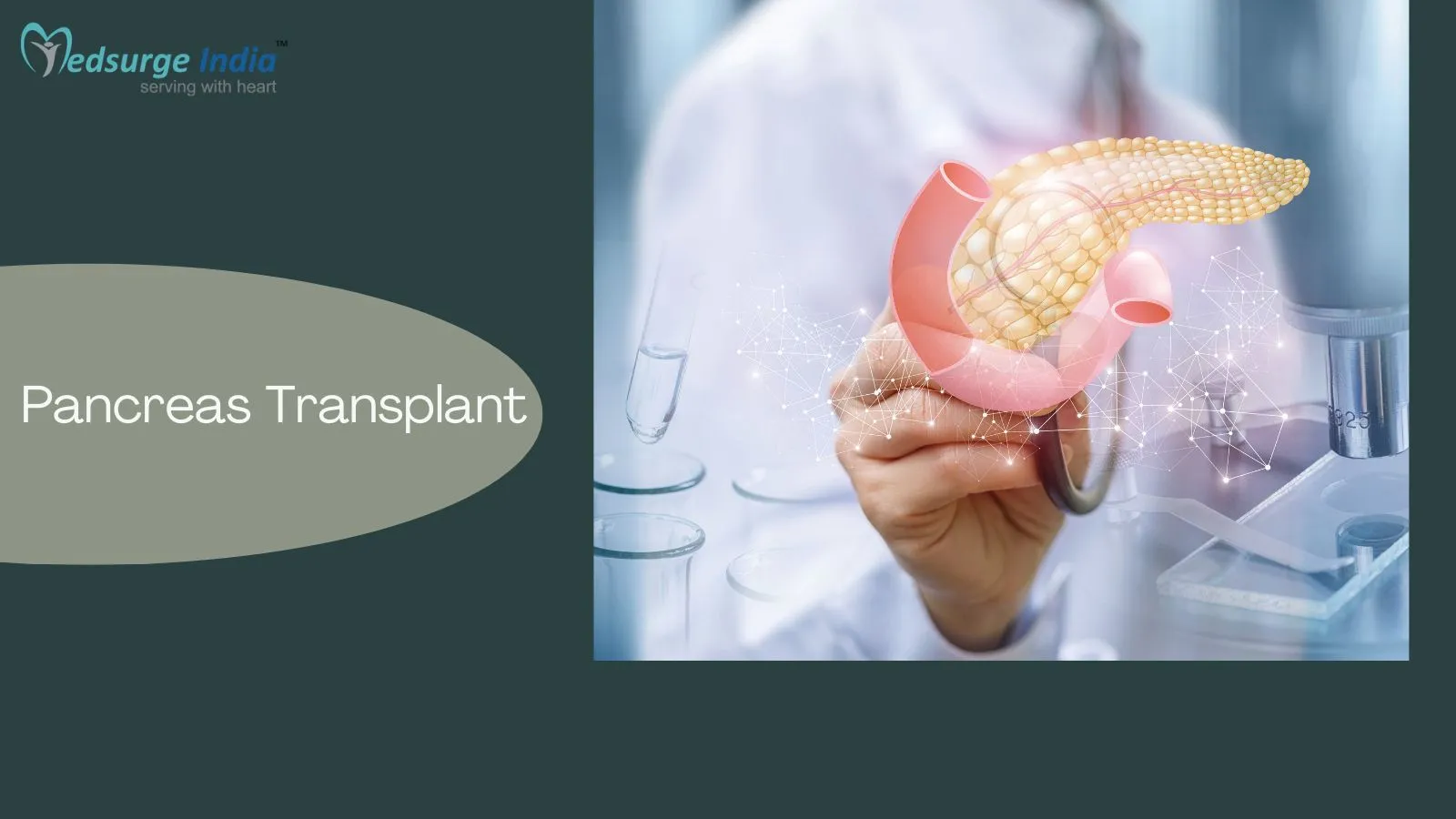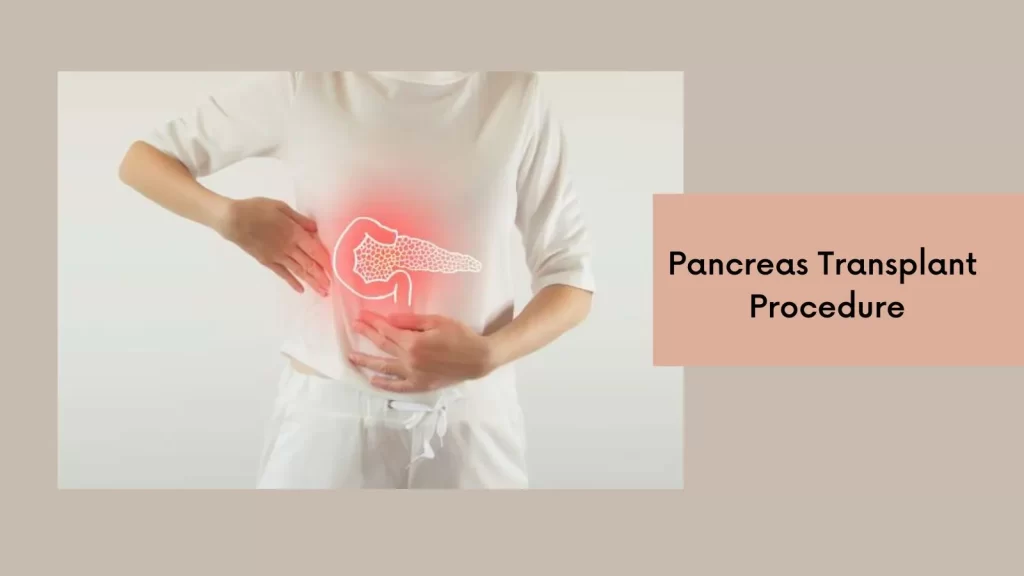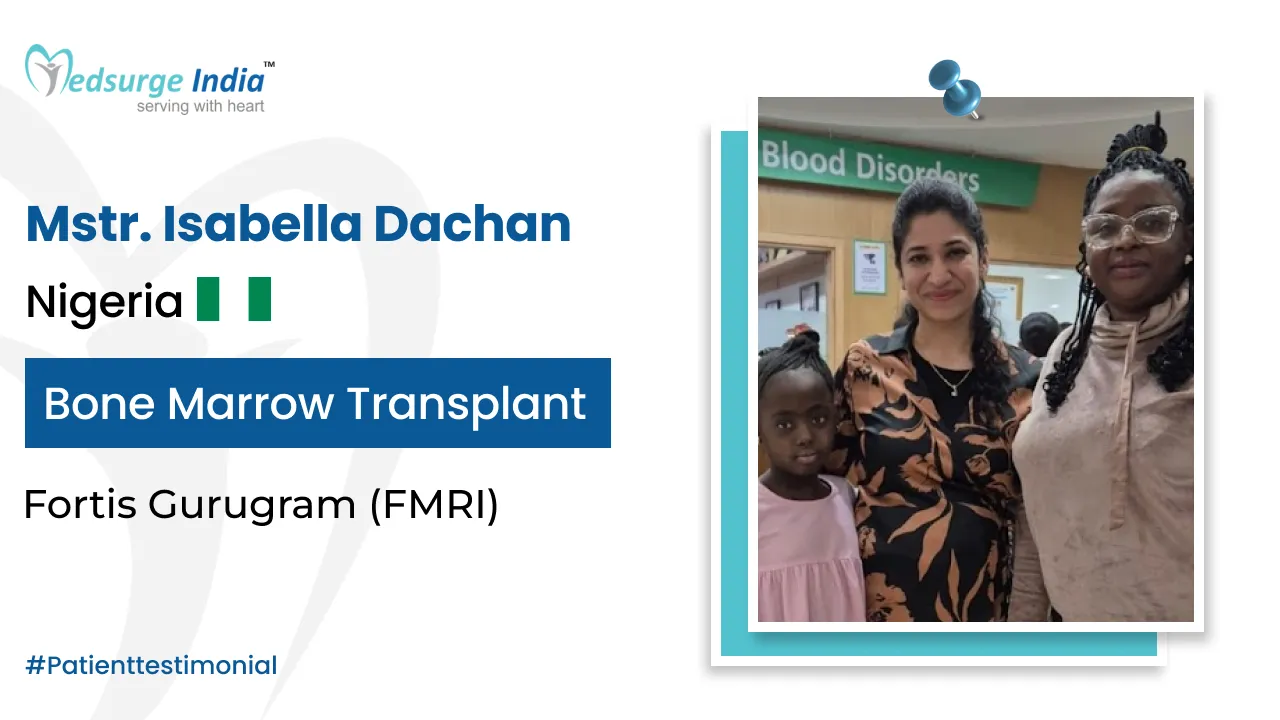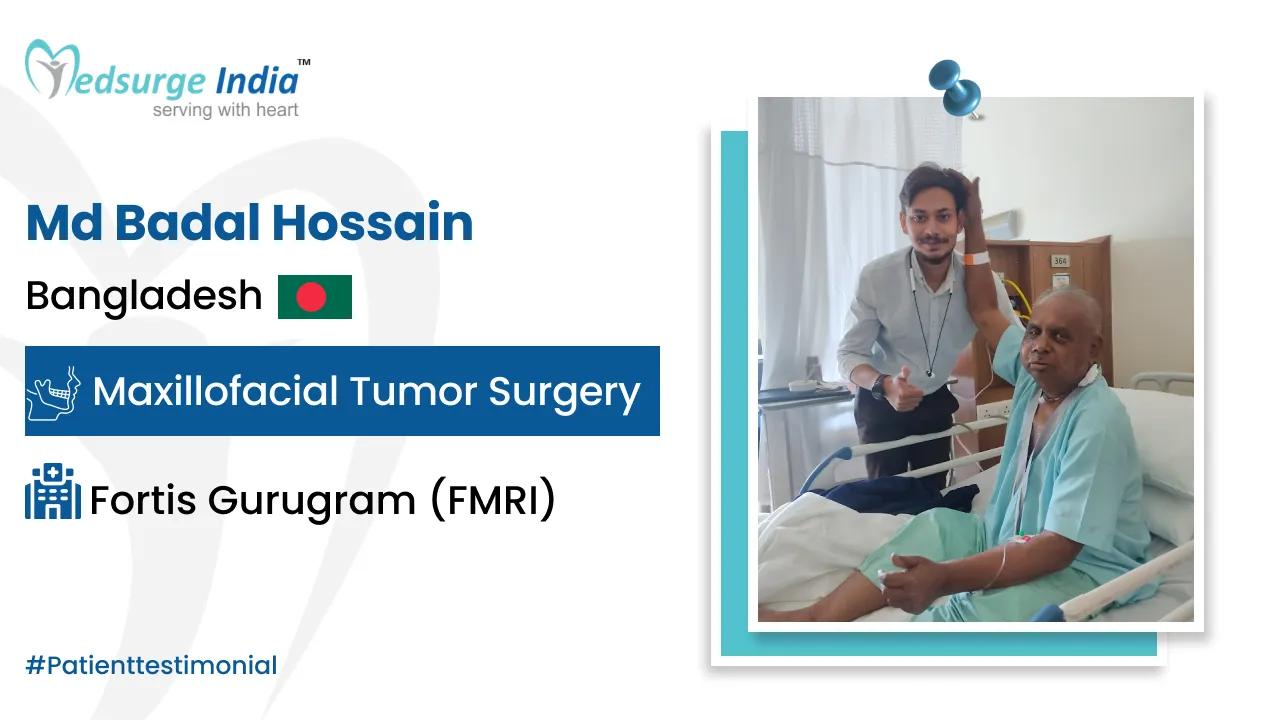
Pancreas Transplant: Types, Procedure & Recovery
A Pancreas Transplant is a procedure that involves transplanting a healthy pancreas from a deceased donor into a person whose pancreatic is no longer functioning correctly.
The majority of Pancreas Transplantation in India are performed to treat type 1 diabetes. A pancreas transplant may be able to cure this medical condition. However, because the side effects of a pancreas transplant can be severe, it is normally reserved for people with severe diabetic issues.
About Pancreas Transplantation
The pancreas is a hand-sized organ that is placed in the abdomen near the stomach, intestines, and other organs. It occupies the space behind the stomach and front of the spine. The pancreas produces digestive juices as well as hormones such as insulin and glucagon, which helps the body maintain appropriate blood sugar levels and use and store energy from food.
A Pancreas Transplant in India is an organ transplant in which a healthy pancreas (one that produces insulin) is implanted into a person whose pancreas no longer produces enough insulin for the body. The healthy pancreas is derived from either a deceased donor or a partial pancreas from a living donor.
A pancreas transplant may be able to cure type 1 or insulin-dependent diabetes. A Successful Pancreas Transplantation in India will eliminate the need for insulin injections, reduce or eliminate diabetes-related food and physical activity restrictions, and minimize or eliminate the risk of severe low blood sugar reactions. A pancreas transplant can also help manage the damage to other organs, such as the kidneys, that type 1 diabetes might cause.
One of the most serious complications of Type 1 diabetes is kidney damage. The majority of persons who are candidates for a pancreas transplant also have renal failure. A pancreas transplant is frequently performed in combination with a Kidney Transplant in India.
A person with diabetes can begin to make insulin (insulin independence) with a healthy pancreas from a transplant.
Types of Pancreas Transplantation
Types of Pancreas Transplantation in India is classified as following:
1.Pancreas transplantation alone: People with diabetes who have early or no renal damage may be candidates for a pancreas transplant alone. A pancreatic transplant operation involves implanting a healthy pancreas into a recipient whose pancreas is no longer functional.
2.Combined kidney-pancreas transplant: For persons with diabetes who are at risk of renal failure, surgeons may perform combination (simultaneous) kidney-pancreas transplants. The majority of pancreas transplants are performed simultaneously with kidney transplants. The goal of this approach is to provide you with a healthy kidney and pancreas that are unlikely to contribute to future diabetes-related kidney impairment.
3.Pancreas-after-kidney transplant: If a living or deceased donor kidney becomes available after a long wait for both a donor kidney and a donor pancreas, a kidney transplant may be advised first. When a donor pancreas becomes available after you recover from kidney transplant surgery, you will be given a pancreas transplant.
4.Pancreatic islet cell transplantation: Insulin-producing cells (islet cells) extracted from a deceased donor’s pancreas are injected into a vein that leads to your liver during pancreatic islet cell transplantation. It is possible that more than one injection of transplanted islet cells will be required. Islet cell transplantation is being researched for those with substantial, progressing type 1 diabetes problems. It can only be done as part of a clinical trial approved by the Food and Drug Administration.
Who is the Ideal Candidate for Pancreas Transplantation in India
Candidates for Pancreas Transplantation in India usually have type 1 diabetes, combined with kidney dysfunction, nerve damage, vision issues, or another disease consequence. In general, healthcare practitioners consider a transplant for someone whose diabetes has progressed despite medical treatment. This is especially true if low blood sugar (hypoglycemia) has been a long-term issue. People with type 2 diabetes have also undergone pancreatic transplants. A pancreas transplant is also most effective in those who do not have heart or blood vessel disease. If you decide to get a pancreas transplant, you may be advised to quit smoking or lose weight before the procedure.
A Pancreas Transplant in India may be considered a possible treatment option if one or more of the following conditions apply.
- Standard treatment does not control type 1 diabetes.
- Severe reactions to insulin occur frequently
- Poor Blood Sugar Management
- Lack of understanding for Hypoglycemia
- Severe Kidney Damage
Cost of Pancreas Transplantation in India
The average Cost of a Pancreatic Transplantation in India is starts from 18,000 USD. This cost can vary depending on a number of factors, including:
The pancreas implanted is usually from a cadaveric donor. However, cadaveric transplantation is not permitted in India for international patients. International patients can choose a live donor pancreas transplant, in which they will receive a portion of the pancreas capable of performing at least some functions, rather than the full pancreas. A twin or a close relative can be the donor.
Best Pancreas Transplant Doctors in India
Top Pancreas Transplant Hospitals in India
- Global Hospital, Mumbai
- Fortis Hospital Gurgaon
- Fortis Hospital Noida
- Manipal Hospital Dwarka, Delhi
- Global Hospital, Bangalore
- Amrita Hospital, Faridabad
- Indraprastha Apollo Hospital New Delhi
How Pancreas Transplantation is Performed
Before the Procedure
If your doctor believes you are a candidate for a pancreas transplant in India, you will need:
- Finding a donor for a pancreas transplant in India is the first step. International patients are not permitted to undergo cadaveric transplantation in India. This leaves just one alternative for the patient: living donor transplantation via a twin or close relative who is a strong HLA match.
- In this type of transplant, the patient will not receive the full pancreas, but rather a portion of it capable of performing at least some functions.
- If the patient is a good match for pancreatic transplantation, the pre-transplant tests can begin.
- Blood and urine tests will be performed to ensure that you are in good enough health to undergo surgery.
- History and physical examination.
- Immunological testing to assist the transplant team in matching you with a compatible donor.
- Imaging tests (such as ultrasound and MRI) are used to ensure your health and to assist plan surgery.
- Psychological testing to ensure that you understand the surgery and its risks.
The patient will be expected to follow some instructions in the days coming up to the transplant, including:
- Maintaining a healthy and balanced diet
- Quitting smoking and drinking
- Following the treatment regimen suggested
- Exercise on a regular basis and maintain an active lifestyle, as recommended by your doctor.
- Attending all pre-transplant examinations and appointments
During the Procedure
- Pancreas transplant surgery is done under general anesthesia and can take anywhere from 3 to 6 hours, depending on the type of transplant.
- All liquid medications will be administered to the patient via an IV (intravenous) line in the arm.
- In the center of your abdomen, the surgeon will make a deep incision. Following that, a portion of a donor’s pancreas (with a portion of the small intestine connected) will be implanted in the recipient’s lower abdomen.
- The donor pancreas and small intestine will be connected to the blood arteries that feed blood to the recipient’s legs and small intestine, respectively.
- The pancreas of the receiver remains in place and continues to provide whatever minimal function it can.
- Finally, the surgeon will use stitches to close the incisions. After the surgery, the patient will be sent to a specialized recovery room.
After the Procedure
- When the patient’s condition stabilizes, they will be transferred to an intensive care unit (ICU), where they will be constantly monitored for potential hazards or problems.
- A few tests will be performed to ensure that the essential organs are functioning well after the transplant.
- To avoid the possibility of acute immunological rejection, the patient will be given anti-rejection medications on a regular basis.
- After a few days in the ICU, the patient will be transferred to a regular ward, where the initial recuperation will begin.
- The patient will be discharged from the hospital once the doctor determines that their condition has been adequately stabilized.
Recovery
If there are no complications, the prognosis following pancreatic transplantation is usually favorable. People can live for years, if not decades, after surgery. After five years, almost half of new pancreases are still functional. If a transplanted pancreas fails to function properly, a surgeon can remove and replace it. Following a transplant, you will be required to take immunosuppressant drugs for the rest of your life. They keep your body from attacking the new organ (a process known as rejection). These medications can have substantial negative effects, but you should not stop taking them without first consulting with your doctor.












